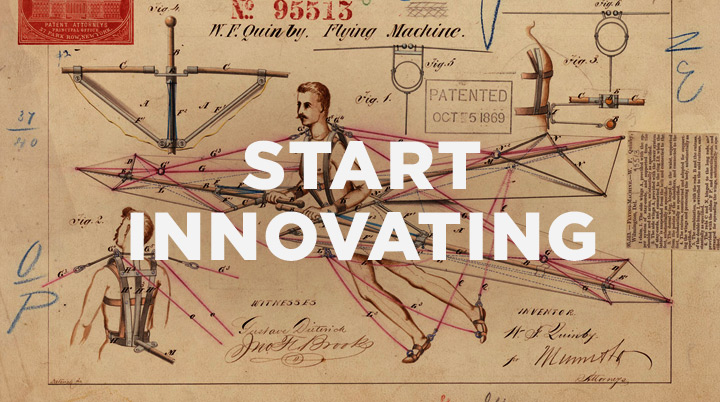Latest
-
Objections to the Christian Faith from the Unchurched and De-Churched
 Tue Dec 02, 2014
Tue Dec 02, 2014
by Resurgence -
Craig Groeschel: We Innovate for Jesus
 Tue Oct 14, 2014
Tue Oct 14, 2014
by Resurgence -
Mark Driscoll: Revelation
 Tue Oct 07, 2014
Tue Oct 07, 2014
by Resurgence -
RESURGENCE LEADERSHIP #034: JOHN PIPER, WHY I TRUST THE SCRIPTURES, PART 2
 Tue Sep 30, 2014
Tue Sep 30, 2014
by Resurgence -
Resurgence Leadership #033: John Piper, Why I Trust the Scriptures, Part 1
 Tue Sep 23, 2014
Tue Sep 23, 2014
by Resurgence

Archives
How to stop copying and start innovating

Everyone understands the value of innovation. Christian leaders are hearing the call to innovate to advance the gospel, and we recently shared 6 practical steps leaders can take to become more innovative. But unfortunately, many attempts to be innovative fail miserably. Why?
Why do so many attempts at innovation, especially in the church, fall flat?
Because many people incorrectly believe that technology and innovation are synonymous.
Innovation isn’t the same as technology
The truth is that technology can be one manifestation of innovation, but in most cases, technology is not innovative at all. For example, a church would be very innovative to have a website and distribute sermons online in 1999. But in 2013, using technology to create a website and make sermons available online isn’t innovative at all.
Real innovation is much more than technology. It can take many forms, such as creating a new package for an old product that attracts attention or is easier to use. Or discovering a cheaper, more efficient procedure for planting churches. Or developing methods to reach underserved cultures, demographics, and geographic locations that are being ignored by the church.
Many people incorrectly believe that technology and innovation are synonymous
One can learn something about innovation by observing Top 40 music. Granted, not all popular music is innovative, but many songs that make it to the top are great examples of innovation in music. Sometimes these songs are just plain weird. Other times they are offensive in a new way. Many times they push the boundaries of what has been acceptable and in doing so provide something new for the audience to consume and debate. In such cases, the producers have created something unique—something not quite like anything you’ve ever heard.
Innovation is risky
Our first reaction, as we often do with anything that’s new, is to reject the innovation.
We chalk it up to trying too hard, or missing the mark, or not understanding culture, or just plain failing. But eventually, despite offending so many, these songs catch on. People listen to them a few times and they start to like them. Or something even more offensive comes out and the original song suddenly doesn’t seem so bad anymore. Before you know it, a dozen more songs have popped up that sound just like them. But by that time, the sound is no longer innovative and producers have to come up with something entirely new to catch people’s ears and captivate their attention again.
Innovations push the boundaries of what has been acceptable
As music teaches us, you don’t have to create something entirely new to be innovative. You just have to do something in a unique context. One of the most popular country songs of the last few years used rap in the verses. Rap in and of itself had been around for decades—but not in country music.
Many people hated this particular country song when it first came out, but eventually it became one of the top-selling songs of the decade. This is because the artists took two familiar things and combined them in a different way to form something new. That’s how many innovations are created.
You don’t have to create something entirely new to be innovative. You just have to do something in a unique context
Combine overflow rooms with church planting, and you’ve got multi-site churches. Combine rock music with worship music, and you’ve got the modern megachurch sound. Combine the Bible with the iPhone, and you’ve got YouVersion and a hundred million downloads.
Innovation isn’t copying what’s hot
One caution to consider from the music industry is that you can’t innovate by copying what’s being done today.
Professional songwriters will tell you that if you want to be great at writing, you must stop listening to Top 40 radio. This is because listening to pop music will make your work sound like the music that’s being released today. But today’s pop music was actually written four years ago, recorded two years ago, released six months ago, and is just now becoming popular.
You can’t innovate by copying what’s being done today
If you write music that sounds like the music coming out today, you’re already four years behind. The most innovative writers are inventing today what’s going to be popular in music half a decade from now.
So stop copying yesterday and start inventing tomorrow. That’s innovation.